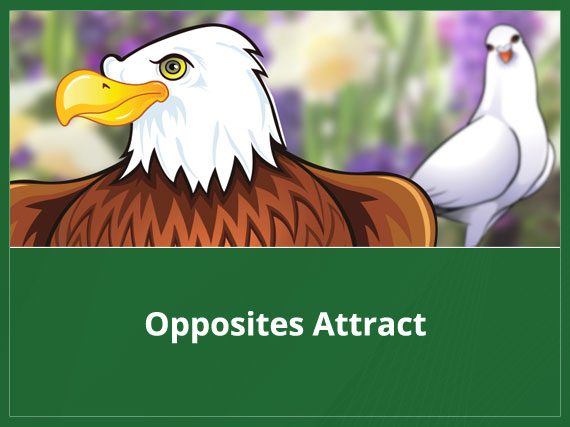Ask just about anyone whether they would score very differently than their spouse or significant other on a personality test, and the answer will overwhelmingly be “Yes!” As the cliché goes, opposites attract.
However, when I ask DISC training participants if they are as attracted to their opposites at work as much as they are in their personal lives the answer is inevitably: “Not a chance!”
What accounts for this difference in approach? Why are we attracted to our opposite in our personal relationships but wary of our opposite in professional relationships?
Here’s one answer: Opposites attract when you’re in a good mood.
When you are in a happy place, opposites are fascinating. We appreciate differences when they add richness and diversity to our lives.
During the dating and infatuation phase of a personal relationship we revel in differences: “He likes chocolate, I like vanilla. We complete each other!”
But eventually the slayer of “all that is opposite is good” appears, either gradually or in a flash.
Now we are repelled by our opposite for one simple reason: STRESS.
When we’re under duress, opposites no longer attract, they attack. In personal relationships, it’s only a matter of time before stress challenges the strength of a couple’s commitment to each other.
Each DISC style has a very different way of expressing its stress. (See Stressing Out in Style blog). And because the early relationship infatuation phase is so strong, the first fight or stress event often comes as a shock to both sides.
At the office, by contrast, we anticipate that there will be stress. We know there will be pressure to perform, to put in extra time, to work on difficult projects with people we would otherwise not choose to spend so much time with. The DISC system reveals many reasons why working closely with someone of the opposite style can be very challenging. For example, she focuses on perfecting systems while you want to plow ahead before an opportunity is lost. Trouble ensues.
So, the next time you are in a situation with an opposite style, think about how that person’s DISC style will affect both of you when stress appears. This will give you time to prepare and handle difficult situations with skill and care.




